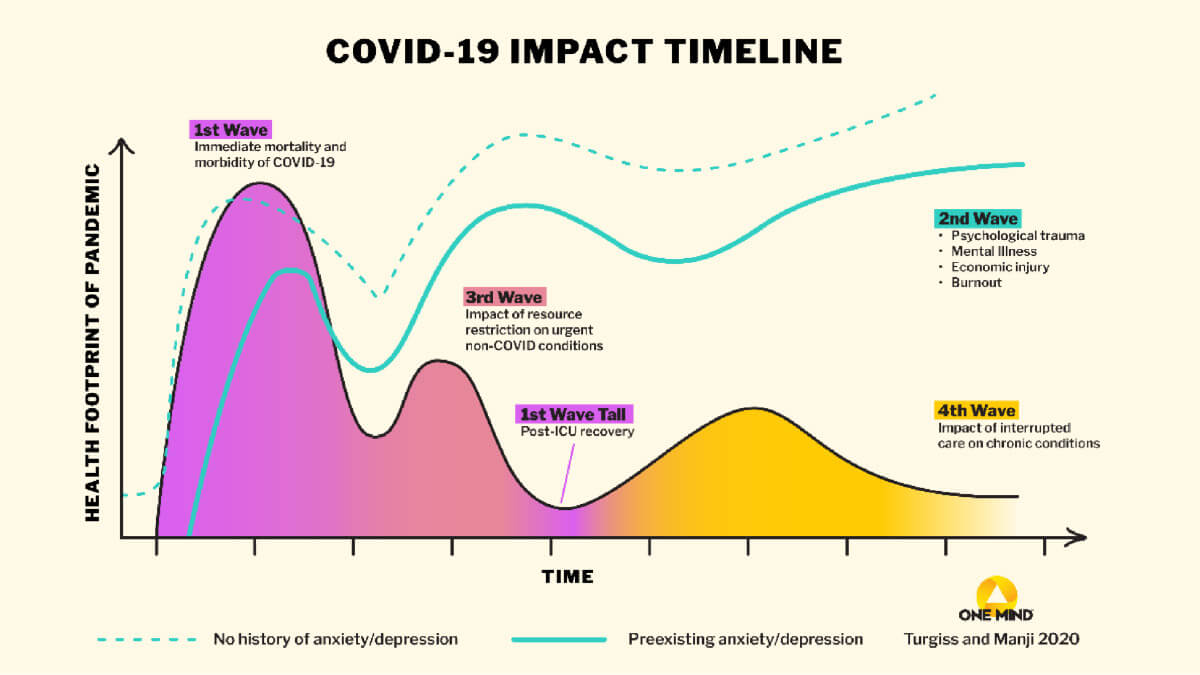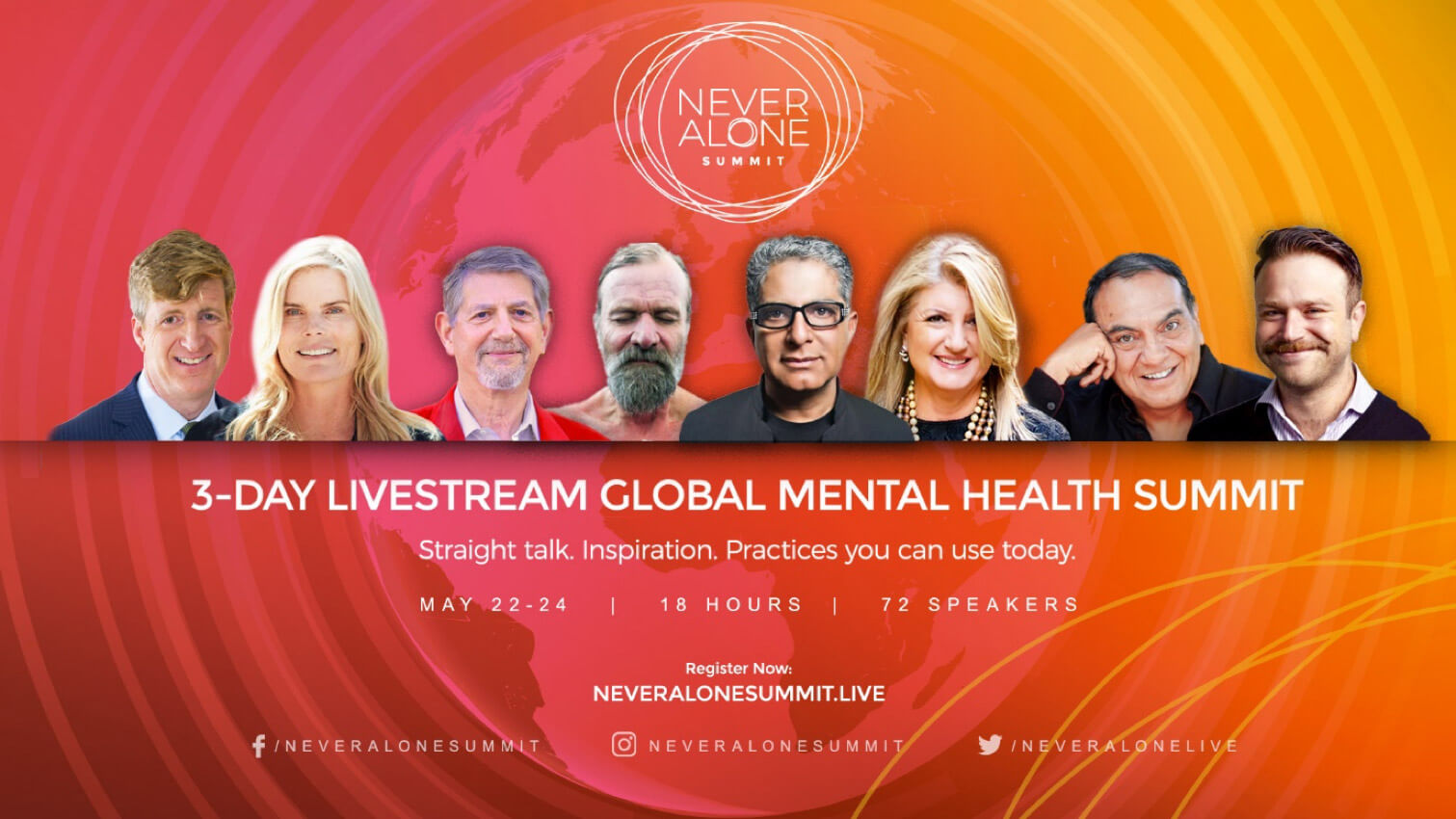By Deepak Chopra, MD and Anoop Kumar, MD
When people seek personal change in their lives, they often don’t get very far. Even in this day when online advice is bewilderingly abundant and self-improvement books are at our fingertips, change eludes us. One way to remedy this is to start from the ground up. Normally, we feel compelled to start where we are right now, and that’s a tremendous problem.
No matter how different people are, each of us woke up this morning to the same situation. We are constantly involved in thinking, feeling, and doing. No one starts this activity afresh. Instead, we are heavily invested in habits, beliefs, opinions, hopes, dreams, and fears collected from the past. So our thinking, feeling, and doing is entangled with the past even when we want something new, better, fresh, and different.
You can’t always use will power or desire to cut the ties that bind you to the past, but you can do something that will lessen the influence of the past: You can start to see yourself clearly. With that one intention, you are starting from the ground up, because seeing yourself clearly happens here and now. You detach yourself from your story, which is the accumulation of your past. You take a fresh look at what is generating all this thinking, feeling, and doing. The process has to have an origin, a source, a wellspring that sets the active mind going every minute of the day.
Normally, if we try to see ourselves clearly, we are actually looking through a lens. We filter and arrange our experiences. Some experiences we reject, ignore, judge against, or censor. Other experiences we encourage, value, appreciate, and allow to enter our minds. The lens you choose is critical, yet people often don’t realize they have a choice. It doesn’t strike them in the first place that they see themselves—and everything around them—through a lens.
The lens you see through can also be called your mindset, worldview, or simply your state of awareness. Your perspective, on life, family, relationships, work stem from it. Things become confusing because we are caught up in the conflicting stories, explanations, and belief systems that everyone gets exposed to. This confusion can be sorted out once you start to see yourself clearly. Cutting through all the clutter, you discover that you actually know what’s going on. Deep inside, you are fully aware already.
There are three lenses you can view life through, configured as Mind 1, 2, or 3 at this moment.
Mind 1
You view life as a separate individual. The leading indicator of Mind 1 is the sense of localization within the body. As a result of being limited by the body, Mind 1 can only detect a world of localized things. As we see ourselves, so we see the world. You localize yourself in your body, and as a result you see a world of separate things. Other people live inside their own bodies, which gives them their own sense of separation. In Mind 1 you provide fertile ground for the ego. “I, me, and mine” become all-important. This makes perfect sense, because your agenda as a separate person is all about the experiences of pleasure and pain that emanate from the body. Even a mental state like anxiety is rooted in the body, because what you fear comes down to a painful feeling “in here.” In every respect Mind 1 is dominated by yes and no to the experiences that come your way. To achieve peace, you must successfully compete in the arena of separate people and things, experiences and events.
Mind 1 seems totally right and natural in the modern secular world. Mind 1 is reflected in science’s total focus on physical things, from microbes and subatomic particles, from the Big Bang to the multiverse. A bestselling book from 1970, Our Bodies, Ourselves, applies to all of us in Mind 1.
Mind 2
Mind 2 is centered in the unity of mind and body. It isn’t necessary to see yourself confined to the physical package of a body. In fact, this mindset can be turned on its head. In place of isolation there is connection; in place of things there is process; in place of hard facts, there is an easy continuous flow. You relax into the flow of experience rather than slicing life into bits that must be judged, analyzed, accepted or rejected. Mind 2 lets you see yourself more clearly, because in reality the mind-body connection is a single continuity. Every thought and feeling creates an effect in every cell. You can consciously create change in the whole system through a switch in awareness. Mind 2 is subtler than Mind 1—you have moved deeper inside who you really are, and those aspects and abilities that were filtered out by Mind 1 begin to come into view. You are the one who experiences, observes, and knows.
For most people Mind 2 begins to dawn when they meditate or do Yoga, finding access to the quiet mind that lies beneath the surface of the restless active mind. With this discovery comes a way to see beyond the separate ego’s fruitless search for “perfect” pleasure, power, or success. As a deeper vision of self and life soaks through all experience, Mind 2 is established.
Mind 3
Mind 3 expands awareness beyond all particulars. It is a radical redefining of what we mean when we use the indicator “I.” It places you in an infinite field of pure awareness, where all things exist as possibilities. This is not only a clear view, it is clarity itself, because there is no thing or process to obstruct your vision. Boundaries don’t exist. There is no past or future. Even the idea of a present vanishes. the clearest view you can possibly have, because there are no boundaries to limit your vision. You are awake, you see things without any filter, your past no longer holds you captive, and therefore you are free, which is why Mind 3 has been known for centuries as liberation. There are no more “mind-forged manacles,” as the poet William Blake memorably called our self-imposed limitations.
Mind 3 is open to everyone, but there is a large obstacle that must be overcome, which is this: We are convinced by the lens we see things through already. Each mindset feels real and complete. You identify with physical things in Mind 1, the most important thing being your body. In Mind 2 you identify with your field of awareness as it brings experiences and sensations that rise and fall. Because it takes an inner journey to reach, Mind 2 isn’t where the mass of humankind is, yet without a doubt anyone can go there. Mind 2 is a more natural fit than Mind 1, in fact, because if you see yourself clearly, you cannot doubt that thinking, feeling, and doing is constantly on the move, ever-changing, ever renewing itself.
But Mind 2 has its own peculiar limitation. “I” lingers and holds its own by experiencing “my” thinking, feeling, and doing. There is no need for this. Everyone alive, with the fewest exceptions, has been indoctrinated into Mind 1. In Mind 2 you escape this crude, second-hand, socially approved indoctrination. But there is a subtle indoctrination that replaces it, which sees the spiritual life as higher, better, and more valuable than ordinary life. This leads to a subtle clinging, a desire to keep the spiritual goodies coming your way and a self-image superior to those people who have not yet seen the light.
The subtle tendency to possess any idea, however fine that idea is, keeps the ego going. Letting it go entirely feels threatening. Who will I be if there is no I anymore? But if you stand back, this fearful worry only exists because the ego is asking it. Of course “I” will never agree to its own demotion. “I” is about self-preservation. The shift into Mind 3 occurs when you see that there are countless moments when you did without your ego.
Every experience of joy, love, compassion, beauty, peace, and service sets the ego aside. You go beyond “I” in a simple, natural glimpse of who you really are. You are the field of awareness itself, unbounded and free. Every possible experience originates here, before the whole interference of ego, society, family, school, and painful memories even begins.
That’s why Mind 3 has been dubbed the first and last freedom. It is the freedom you attain when you realize that you had it all along. Clear away the clutter, and it is simply there. Mind 1 and Mind 2 are creations, while Mind 3 is uncreated. It is the womb of creation, and when we arrive there, the inevitable feeling is that we’ve returned home at last. NOTE: For a visual journey through these Three Minds, visit anoopkumar.com/mind.


